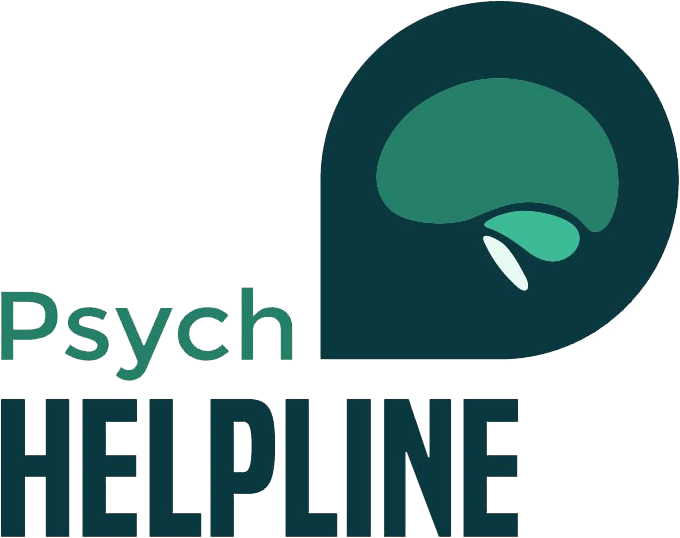Table of Contents
How long does therapy take to bear fruitful results? As humans, we are instinctively doubtful. So, this is the very first question that is going to pop into your head while wondering whether or not therapy works. Attending therapy for a mental anomaly or personality disorder might be the best choice one can make for themselves but rarely does anyone starts with a clean slate.
Everyone wants to know how long will it actually take for you to return to normalcy. Dedicating yourself to a therapy program simply won’t suffice if you are constantly doubting its authenticity. So, here are some dead giveaways that can reassure you that therapy actually works.
5 Reasons Why You Might Be Having Doubts About Making Progress
You’re Comparing Yourself To Others
Let’s assume that you’re giving therapy a chance after noticing its positive influence on a friend. Perhaps you were quite impressed by how your friend seems to be more comfortable in social settings after seeking a therapist’s services. The fact that your friend was able to learn healthy coping mechanisms and find an antidote for any other issues within the span of a few months could impress you enough to seek professional help as well.
But, wait a second before you leap. You are now doing the exact opposite of what you should be doing. Comparing the speed of your recovery with another person’s improvement isn’t the right move. You simply can’t compare two different individuals even though their anomalies might be quite similar.
The extent of how much your symptoms have progressed so far, your history with that particular anomaly, and your traits play a huge role in this context. So, even if your acquaintance was able to get over PTSD within months it does not assure that you’ll be able to match that period. Thus the reason why you believe therapy isn’t working for you could be because you are comparing yourself to someone else.
You’re Focusing Too Much On Temporary Relief
Therapy is a positive influence or a cure that gradually leaves a mark on people. It’s a slow process of undoing the damage an abusive past, traumatic memory, or a mental disorder might’ve done. It takes a while before patients actually find the courage to open up to their therapists.
Initially, the focus will be on learning the origins of the problem and then slowly your therapist can take an approach that suits you well. You simply can’t rush a therapy program for the sake of quick results because temporary bliss does not ensure a positively marked future.
A successful therapy program ensures not only a blissful present but a stable future as well. It is easy to wonder why you still haven’t seen any positive results after 3 or 5 sessions. Consequently, you might doubt whether or not attending therapy was the right decision you made. The reason behind these doubts could quite simply be the fact that you are not giving therapy enough time.
You Have Certain Misconceptions Regarding The Whole Process
Despite having basic knowledge about psychology, and how therapy sessions work in general you’re still a layman. This is not meant to be derogatory, rather that’s just a fact. A professional healthcare worker is always much more informed than you in every way after years of practice. So, reading a few chapters from a book published by a famous psychiatrist does not make you a know-it-all.
Heading over for therapy with these misconceptions can alter your progress rate. With these preconceived ideas in mind, you’ll always assume that your therapist isn’t doing things the way you read them in a book or webpage. Thus having pre-conceived notions about your therapist or how your sessions should operate can make you doubt whether or not it’s positively affecting you.
You’ve Given Too Much Power To The Past
Facing inconveniences in the past can automatically make you a little doubtful about the future. Thus, if you have had a not-so-positive experience with a therapist in the past, you’ll be rightfully worried about repeating the same mistake.
Linking up with a therapist with unsuitable credentials can land you in the wrong hands. Consequently, some people swear off seeking professional assistance because they got unsuitably treated by someone in the past.
Approaching a new therapist for an issue should be a fresh start for you because there is plenty of fish in the sea. If you have done a background check this time don’t let your past create inconveniences for you by creating doubts in your mind. Approaching therapy with a clean slate and fresh perspective can diminish your doubts about it.
You’re Noticing Some Inconsistencies
Yes, sometimes your voice of reason can actually be correct, and not just a doubt you should shrug off. If your therapist has shown some inconsistencies or doesn’t treat you the way he should, you’ll be rightfully doubtful. This is that one occasion when your doubts about your therapy program’s workability are actually substantial. So, if you have given that particular therapist enough time, this might be your cue to take leave based on your doubts. Continue your search for the right one by asking a doctor or counselor to suggest one. Asking around your friends or close relatives might also be a good call.
Therapy Works: 6 Signs Indicating That You’re Making Progress
You’re Not Constantly In A State Of Withdrawal
Self-imposed seclusion is only healthy if it’s done for a small period. Of course, sometimes it can be essential if you need personal space to get over grief or to complete a work assignment in peace. But, long-term seclusion and swearing off socialization is a red flag. Depression, bipolar disorder, and social anxiety can be the three main culprits behind this self-imposed seclusion.
If attending regular therapy sessions has had a fairly positive influence on you then you might be trying to escape this seclusion. It does not have to be something as major as a girls’ night out. Even the urge to go out for a grocery run or evening jog can be an indicator of growth, improvement, and recovery in this context.
You’re Much More Aware Of Your Triggers
Consulting a therapist has two major advantages; firstly, you’ll learn coping mechanisms that help relieve your symptoms. But most importantly you’ll actually learn how to recognize those symptoms and the triggers that amplify those symptoms. With your therapist, you can go over past events and conclude which incident actually caused you the trauma that you’re living with and what triggers sudden panic in you.
For instance; a survivor of domestic abuse can often get triggered by the mention of marriage or romantic relationships. For them, the mention of their ex-s/o or marriage, in general, can trigger old memories and open closed wounds.
So, if you find yourself realizing which factors make you act the way you do, you can avoid that in the future. If it’s impossible to avoid those things, you can at least prepare in advance by finding ways to cope with those triggers. If you are much more aware of these triggers then you are surely benefiting from therapy.
You’re Not Constantly Latching Onto Unhealthy Coping Mechanisms
People deal with grief in so many ways. Some chose to fall off the social radar and stop engaging with the outside world. Others find comfort through alcohol abuse and some might even latch onto another person by unconsciously turning into an emotionally dependent individual. All of these are examples of unhealthy coping mechanisms. That’s because these coping mechanisms do provide temporary relief and take away the numbness but aren’t good for you in the long run.
A prominent indicator of a good therapy program is that you actually understand why your coping mechanisms are so unhealthy. Once you understand this, you can actually try finding additional helpful resources to rewind the damage that’s been done. For instance; someone who realized he has a drinking problem stemming from depression can find great comfort in the form of a rehab facility and Alcoholics Anonymous.
You Have More Faith On Yourself & Others Around You
Therapy can instill confidence in those that have lacked it for a while. Dealing with a mental disorder can drain your self-esteem. You find yourself lacking the confidence to approach the hobbies you like, making the final call in a business meeting, or even making small decisions around the house.
Self-doubt can be so detrimental that you even lose the hope of finding good people that would stick around you. This lack of faith only amplifies over time as you’ll find yourself doubting any person that tries to come close to you. If you feel like you can trust your instincts and allow yourself to open up to others, then attending therapy is working well for you.
You Are Gradually Reaching Your Pre-Planned Goals
Everyone has certain expectations before starting therapy. So, take time to jot down these goals at the very beginning of attending a program. Now, notice whether or not you are gradually ticking off these goals from your list or not. For instance; if you and your partner are attending therapy, you could set a goal that insists on finding ways to spend time together. If that’s actually been made possible in the present, then therapy indeed works for couples like you.
Your Quality Of Life Is Gradually Improving
Any form of improvement in your mental health affects your physical health, emotional stability, and relationship with others. So ask yourself, do I feel more secure while being emotionally intimate with a partner now? Am I feeling more motivated to fight for a work bonus? If the answer to any of these questions is affirmative then attending therapy has surely improved your quality of life.
5 Additional Ways You Can Ensure Attending Therapy Works For You
- You simply can’t memorize everything that’s been preached in front of you during group or individual therapy. So take notes and then go over them once you reach home.
- Find the courage to take extreme steps for the sake of your betterment. This includes finding the emotional force to leave toxic people or toxic habits.
- You have got to stay consistent with the plan you and your therapist have planned for you. Missing out on sessions can cost you big time. Adjust these sessions according to your ease e.g. give skype sessions a chance when in-house sessions seem impossible to attend.
- Take care of yourself. Don’t beat yourself to a pulp if you find the process of recovery too complicated to frustrating. Give yourself some time because unlearning old negative habits takes a lot of courage and time. Do not act like you are your worst enemy. Indulge in some activities that ensure self-care by relieving some pressure off of you.
- Finally, as soon as you start considering your therapist a confidant, the process of recovery will kick-off. Your honesty during these sessions is going to pre-decide how long it’ll take for you to feel like a much healthier “you”. Avoid hiding things for later as that would simply cost you your time and money.
Final Words
The people or environment you surround yourself with are more or less responsible for how you’re going to feel post-sessions. If this environment isn’t supportive enough or adjustable according to your needs, you might struggle. Talk to your partner regarding the changes that need to make around the house. For instance; if a war veteran who is struggling with PTSD lives in the neighborhood, then he can inform his neighbors regarding his condition. In this way, those neighbors will avoid using any fireworks that could inhibit his recovery by triggering him accidentally. Hopefully, now you’ll be able to feel more comfortable while attending therapy. Don’t forget to pat yourself on the back for trying so hard now and then.







